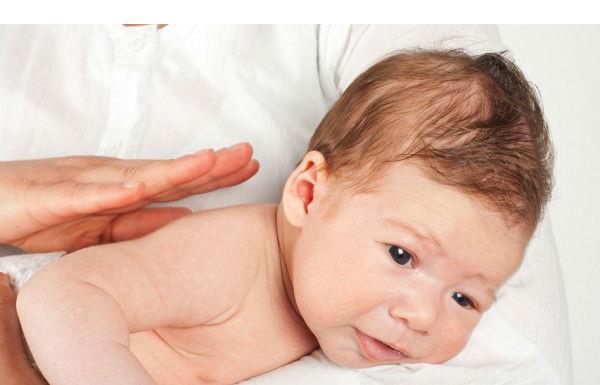Hiccups are a common phenomenon in babies and will gradually decrease when the baby is 1 year old. Although it does not harm anything, but if the hiccups last long will make the baby uncomfortable, sometimes vomiting.
content
Newborn baby hiccups: Why mother?
What to do to limit hiccups?
Newborn baby hiccups: When to worry?
Hiccups are sudden, involuntary contractions of the diaphragm that are repeated many times to expel air from the lungs. This aura passes through the vocal cords making a sob. All ages, including adults, can hiccup, but babies under 1 year old suffer hiccups much more. In particular, babies with gastroesophageal reflux tend to have more frequent hiccups, accompanied by coughing, vomiting, and irritability.
Newborn babies with hiccups often experience short-term hiccups and will go away on their own. However, there are still a number of home remedies or "tips" to help reduce or treat hiccups quickly. Mom can refer to a few tips below.

Hiccups are a common physiological phenomenon in babies
- Give your baby a drink or a sip of water. For infants under 6 months old, instead of using mother's water, the baby should breastfeed immediately.
- Let your baby eat little by little, avoid overeating in each meal.
- Similar to how to give milk to a baby, feeding a baby to a nipple also helps his diaphragm regain control, immediately ending hiccups.
- Use both hands to cover the baby's ears for about 30 seconds and then release. Absolutely do not cover a child's nose or mouth with your hand, even for a few seconds. This can cause choking.
- Hold the baby upright and lean against you then patted and firmly on the back. This way helps the child burp and avoid reflux very effectively.
- Pick up the baby and then use the fingertips to gently scratch the baby's lips or ears about 60 times.
- A gentle back massage is also an effective way to help your baby reduce hiccups.
Newborn baby hiccups: Why mother?
There are many causes of hiccups, but the most typical are the following:
- The baby breastfeeds too quickly or just finished crying, the mother continues to breastfeed, thereby making the baby choke, difficult to suck and eventually leading to hiccups
- Not only milk, many babies also swallow air while sucking, making the stomach over-stretch, stimulating the diaphragm to contract, creating hiccups. This is quite common in bottle-fed babies.
- Babies with indigestion can also cause hiccups.
- When the temperature drops suddenly, the air entering the lungs will make the baby cold and cause hiccups.
- Breastfeeding mothers who eat too many spicy and spicy foods can also make the baby hiccup, because these spices will pass the breast milk "approach" to the baby.

Should you eat spicy foods while breastfeeding? With the little angel, of course I always want to do everything best for you, especially in the first important years of life. Breastfeeding is one of those things, as breastmilk provides a lot of essential nutrients and strengthens your baby's immune system. So eating spicy food during the period for ...
What to do to limit hiccups?
Most of the reasons for a newborn baby 's hiccups are partly due to the fault of adults in the process of caring for the baby. Therefore, mothers can completely help their babies prevent hiccups by following measures:
- Do not breastfeed or eat when you are too hungry, especially do not let your baby eat too full.
- The infant's stomach is horizontal, so when breastfeeding, it is necessary to raise the baby's head high and adjust the amount of milk so that the milk does not drop too quickly.
- For bottle-feeding babies, keep the bottle tilted at a 45-degree angle to reduce the amount of air swallowed by the baby.
- Give your baby a little time to rest between feeding so that the stomach will digest better and reduce the hiccup phenomenon.
- In case the child hiccups many times a day, the hiccups make the baby uncomfortable or agitated, the mother needs to let the baby go to the doctor.
Newborn baby hiccups: When to worry?
Hiccups usually only happen in a few minutes, but if your baby still hiccups continuously for a few hours, the mother should take him to the hospital to check. Continuous, one-time hiccups can be a health warning sign, for example:
- Reflux of the stomach
- There is a tumor in the throat
- Kidney problems
- Diabetes
- Pneumonia













